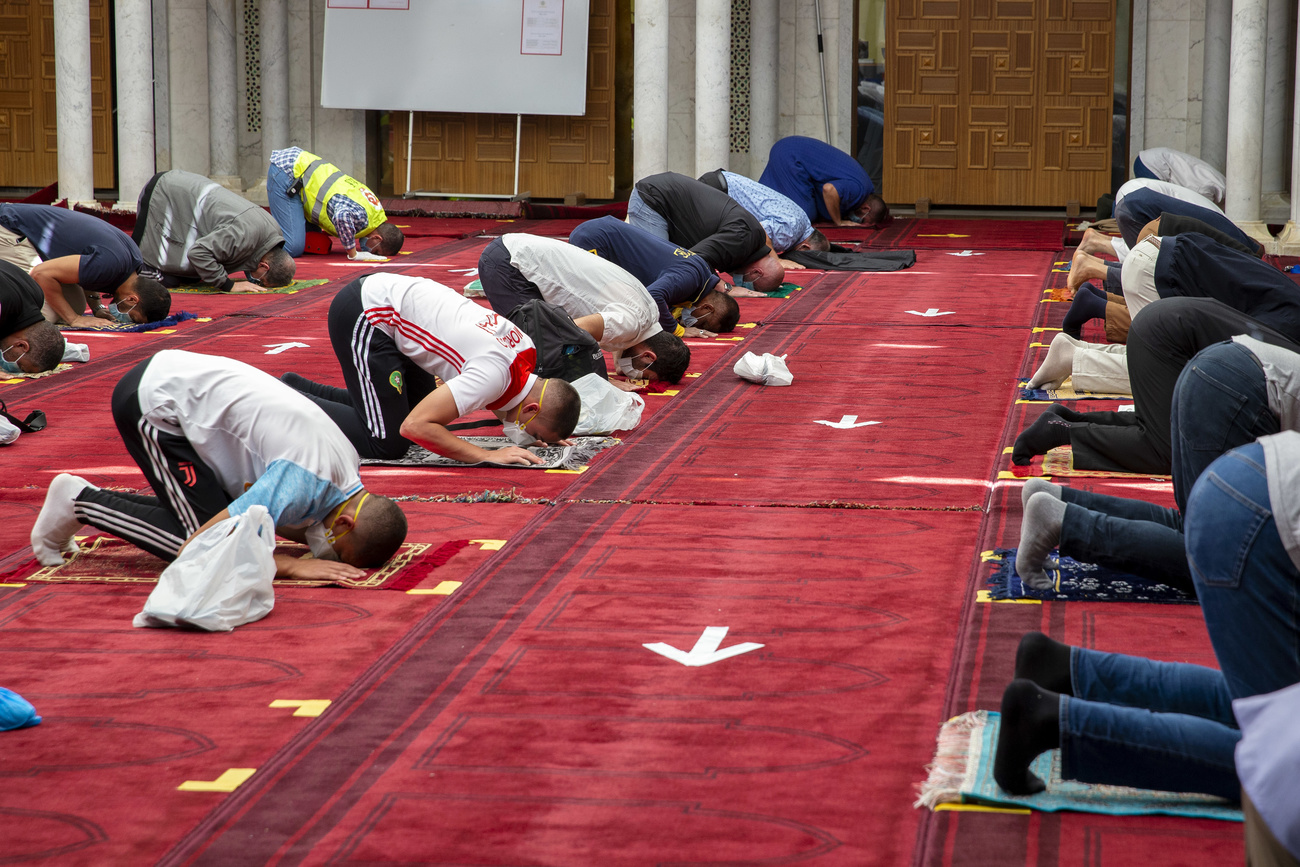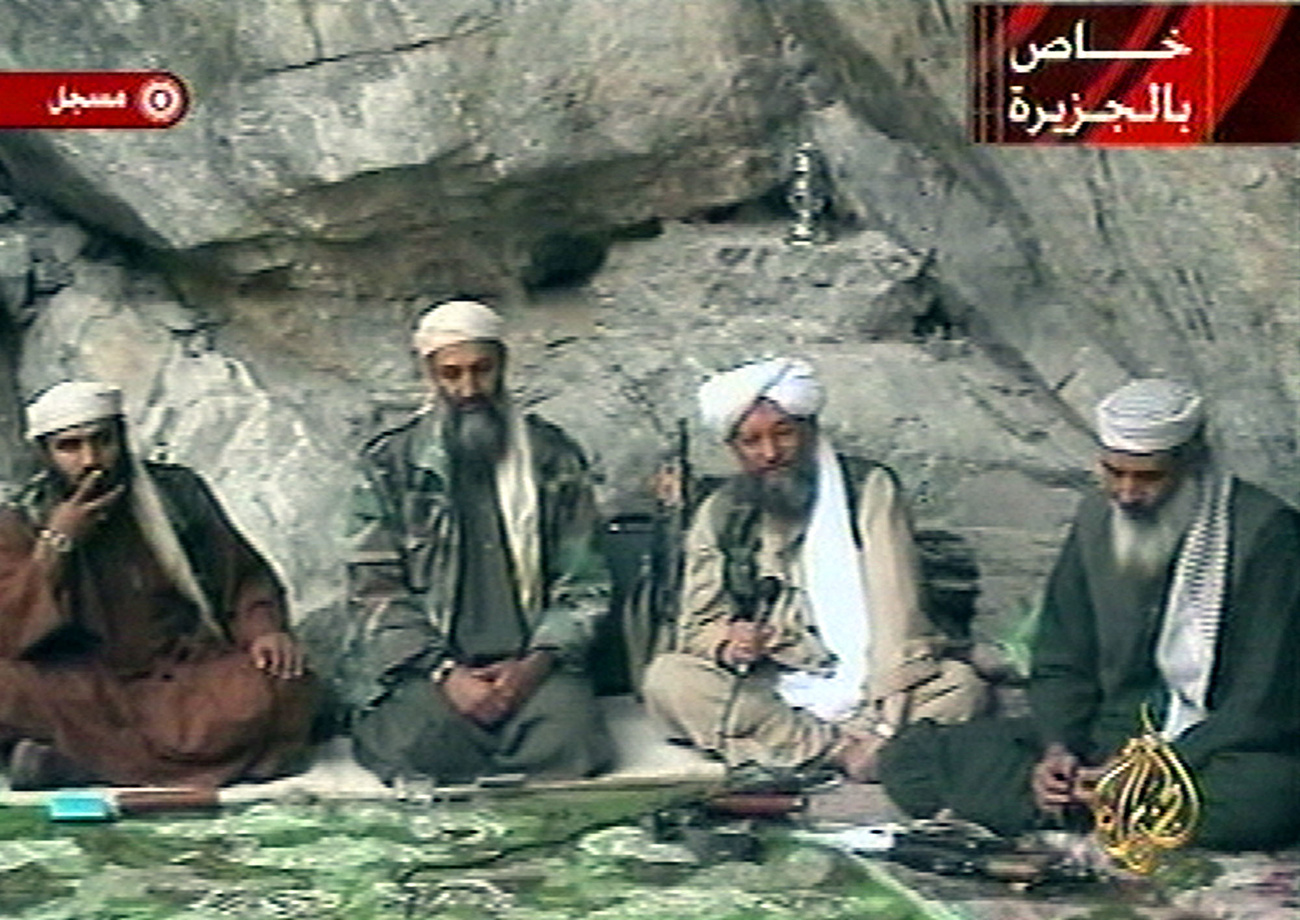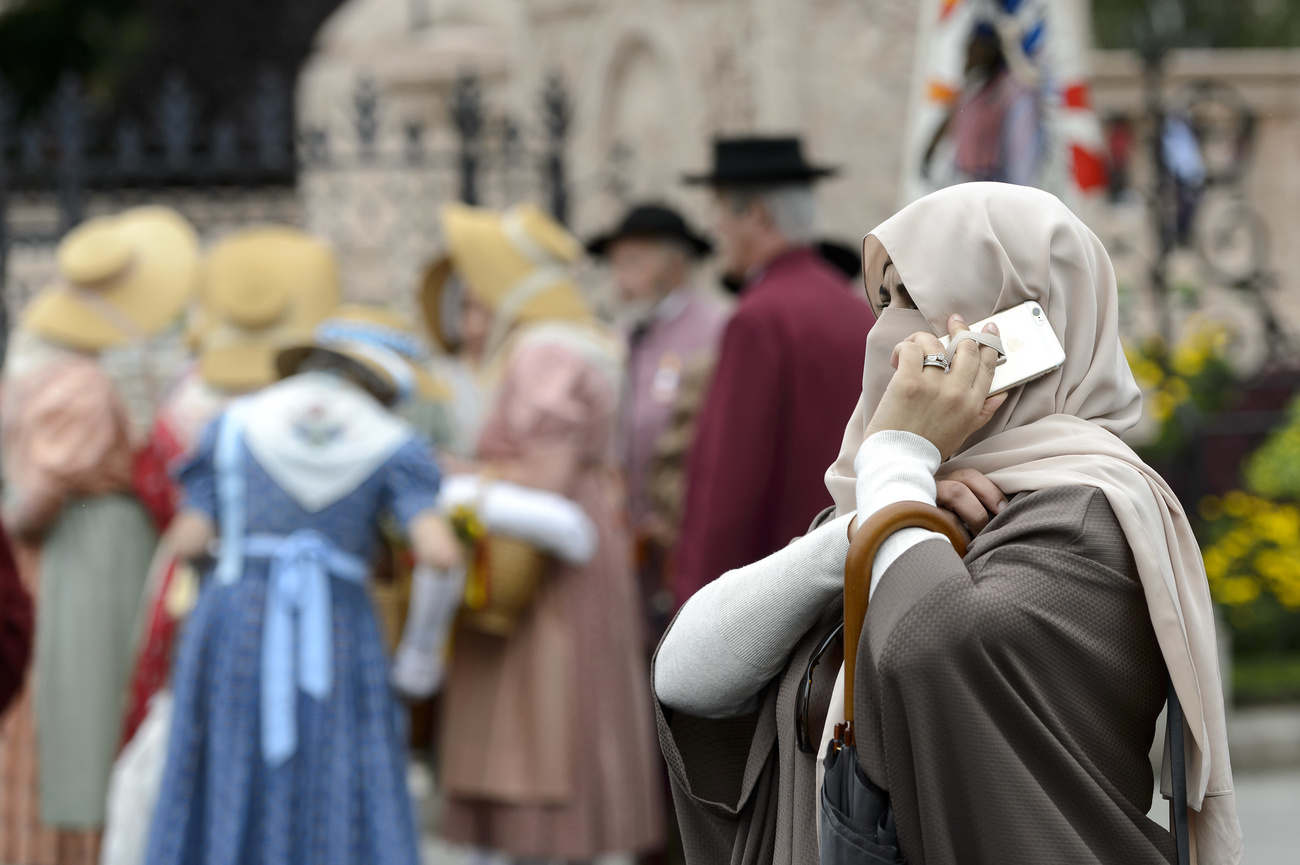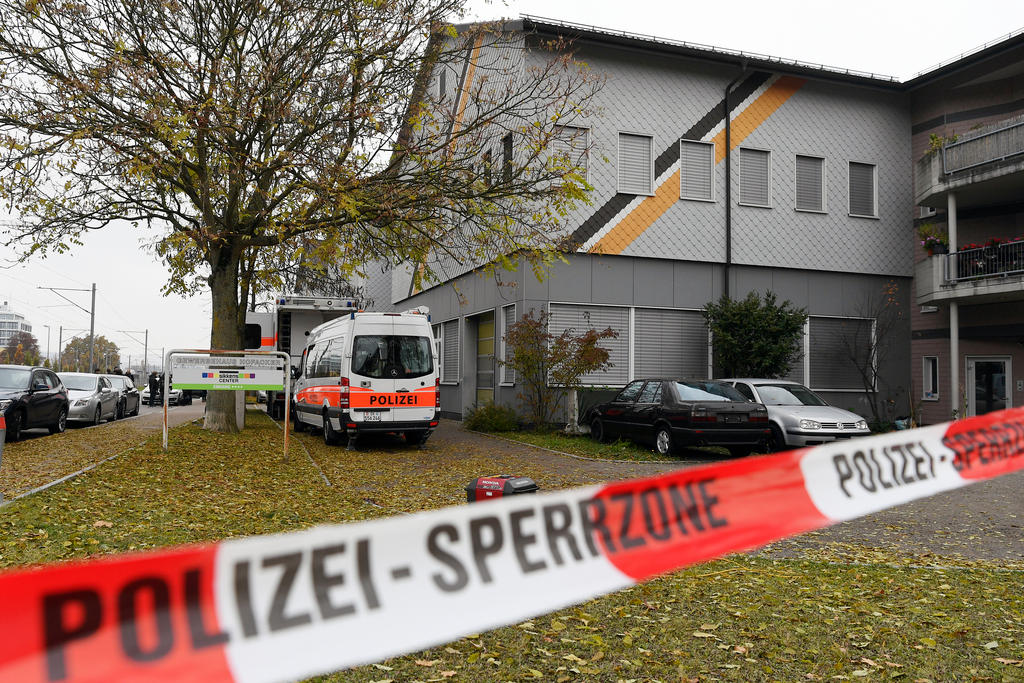
The challenges for young Swiss Muslims after 9/11

Twenty years on from 9/11, young Swiss Muslims are facing rising levels of anti-Islam sentiment, stirred up by political debates and media narratives that create divides between Switzerland’s Muslims and the wider community.
While there have been Muslims living in Switzerland for hundreds of years, the majority of today’s Swiss Muslim communities arrived as guest workers from Turkey, Bosnia, and Kosovo in the 1960s. The liberalisation of immigration policies in 1991 allowed those workers to bring their families, many of which fled from conflicts in the Balkans.
Between 1960 and 2000, the number of Muslims in SwitzerlandExternal link increased from 2,703 to 310,807, making it the third largest religious community in the country. Today, there are roughly 391,000 Muslims over the age of 15 that make up about 5.4% of Switzerland’s populationExternal link.
The viewpoints of two Muslim women that appeared in the original version of this article have been removed because – unknown to the editors of SWI swissinfo.ch at the time of publication – the women are or have been affiliated with the Islamic Central Council of Switzerland (IZRS) and are not representative of Swiss Muslims. The IZRS is considered a radical Islamic organisation. Several of its members have been on trial for jihadist propaganda. Other Swiss Muslim organisations have distanced themselves from the Council.
The rise of violent Islamist groups targeting the West spurred a hardening of attitudes towards Switzerland’s Muslim minority. “Before 9/11 it was the nationality that people focused on, after it became religion,” says Önder Güneş, spokesperson of the Swiss Federation of Islamic Umbrella OrganisationsExternal link (FIDS). In the eyes of the wider Swiss population, the attacks turned migrants into Muslims, and Muslims into radicals, he explains.
The 9/11 attacks were followed by further attacks in Europe, including the Madrid train bombings in 2004 and the 2005 London Underground bombings, which killed 191 and 56 people respectively.

More
How anti-Muslim sentiment has gone mainstream
These attacks heralded the arrival of Islamic terrorism in Europe and brought the threat to Switzerland’s doorstep. They politicised Islam and led to the construction of a media narrative in which Muslims were presented as the cause of societal problems.
A 2017 studyExternal link by the Federal Commission Against Racism (EKR) demonstrated that Swiss print media disproportionately focused on themes that do not represent the everyday experiences of Muslims. Of newspaper articles that dealt with the topic of Islam, 54% focused on themes of “radicalisation” or “terrorism”. Narratives of “successful integration” and “everyday life”, were each mentioned in only 2% of articles.
National votes
The problematisation of Muslims also seeped onto the political stage. In 2009, Switzerland voted in a referendum to ban the building of minarets. This was followed by a vote to ban women from wearing both the burqa and niqab, two forms of Islamic dress that conceal a woman’s face, in public. Despite estimations that only a few dozen Muslim women in Switzerland wore such clothes, the ban was approved by a slim majority of 51.2% in March 2021. Both votes were triggered by members of the conservative, right-wing Swiss People’s Party.
This follows a trend of other European countries that have similarly banned full face coverings. In 2011 France became the first country in the world to ban the wearing of face veils in public, with the Netherlands enacting similar legislation in 2012, and Austria following suit in 2017.

More
Swiss ‘burka ban’ accepted by slim majority
While these referendums have little direct impact on the lives of most Swiss Muslims, feelings of “suspicion and aggressivity towards Muslims peak” when controversial referenda and political debates on Islam abound, says Dr Mallory Schneuwly Purdie, senior researcher at the Swiss Centre for Islam and SocietyExternal link. This ensures that since 9/11, Swiss Muslims have “perceived an increased feeling of discrimination and racism”, explains Dr Schneuwly Purdie.
Discrimination
In fact, a study published by the Swiss National Office of StatisticsExternal link in 2019 showed that Muslims experienced discrimination on the grounds of religion more than any other religious group in Switzerland. The Support Network for Victims of RacismExternal link, meanwhile, registered an increase from 23 reported cases of Islam-related discrimination in 2010, to 55 in 2020, with unreported cases likely being much higher.
Political discourse painting Islam as a problem has pushed some Muslims to explore their faith more deeply. Since others saw and treated them as “just Muslims”, they decided to make Islam a stronger part of their identities, says Dr Schneuwly Purdie. This has made integrating even harder for some, for instance when entering the job market.
While both male and female Muslims can experience difficulties looking for jobs, it is especially difficult for veiled Muslim women, according to spokesman Güneş.

More
Swiss press paints Muslims in negative light
A reportExternal link by Anaïd Lindemann of the University of Lausanne lays out the interconnected reasons for this. A hijab is seen as a clear marker of the religion and makes the woman’s connection to Islam explicit. This intersects with the discrimination that a woman would already face on account of her gender, as well as the (incorrect) perception that hijab wearing women must be foreigners.
Therefore, while visibly Muslim women are often criticised for failing to integrate properly, they are simultaneously barred from doing so by discriminatory workplace practices. “Where should these women integrate, how should these be a part of the society, part of the workforce, if they aren’t allowed to practice their religion how they see fit?” asks Güneş.
Although these challenges are not new or unique to Switzerland, a young generation of Swiss Muslims is pushing back. While the first generation of Muslim immigrants that arrived in Switzerland saw this discrimination as being part and parcel of living in a foreign land, their children who identify as Swiss are far less accepting.

In compliance with the JTI standards
More: SWI swissinfo.ch certified by the Journalism Trust Initiative



























You can find an overview of ongoing debates with our journalists here . Please join us!
If you want to start a conversation about a topic raised in this article or want to report factual errors, email us at english@swissinfo.ch.